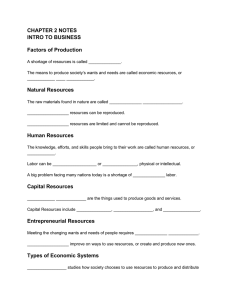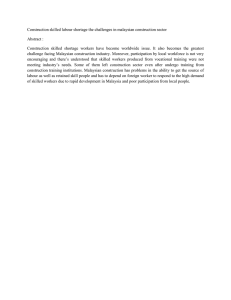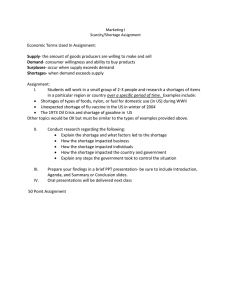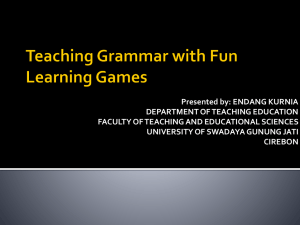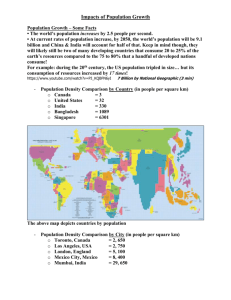Ignorance - Coatbridge High School
advertisement
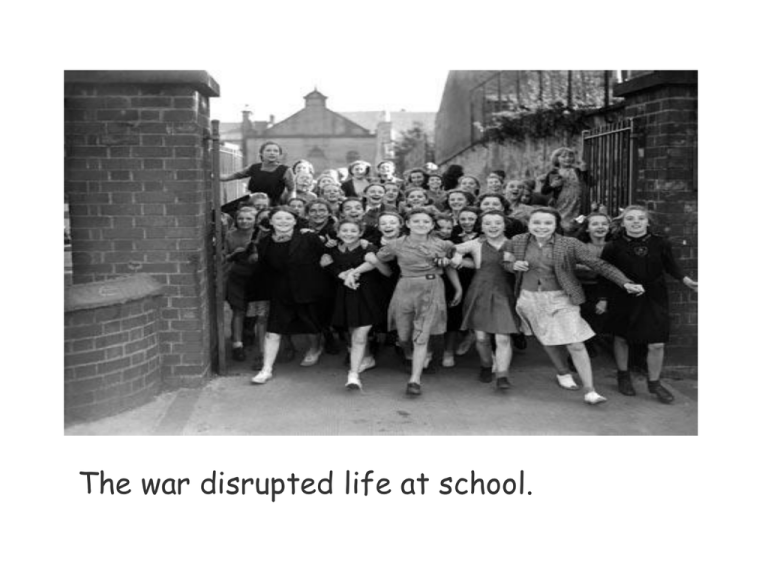
The war disrupted life at school. Education • Government concentrated on shortage and poor condition of schools due to baby boom and war damage Detail of classroom, Ardoch Street, Possilpark, 1957 Education • Education Act inherited from coalition government in 1947 put into operation • Age at which children could leave was raised to 15 at a time when there was a shortage of workers (not 16 until 1971) Education • Led to dual system of secondary and grammar schools children to be allocated as a result of ’11 plus’ exam • Planned an increase in opportunities in higher education • System of grants to be put in place • Government planned to build new schools • By 1950,1176 new schools built • 1948 further intervention in care of children as local authorities required to appoint children’s officers Education:turned out to be socially divisive, why did Labour allow this? • Assessment:compared to provision being carried out in social security and health, Labour did little for the educational welfare of the working class • Due to a lack of Grammar schools(20%) many children were classified as non academic • Secondary modern schools were looked upon as inferior • It was not until 1964 that the idea of comprehensive schools for all abilities and social backgrounds became a reality Assessment: • Marwick: ‘hands were tied’ by the fact that a major act had just been passed therefore could not bring in another one • RJ Cootes “ the forces of education once let loose, could not be contained” • However surprising, no attempt made to integrate public schools into state system
